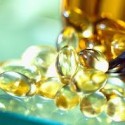Who Answers?
Treatment & Detox Guide
To help, or at least do no harm
Canada’s Health Minister urgently needs an education in harm reduction. Announcing his intention to shut down Insite, the supervised injection facility serving drug addicts in Vancouver’s Downtown Eastside, Tony Clement told the House of Commons health committee that “supervised injection is not medicine; it does not heal the person addicted to drugs.” Mr. Clement got….
Why Obama Isn’t Funding Needle Exchange Programs
Buried on page 795 of President Obama’s budget, released last Thursday, is a paragraph banning the federal funding of needle-exchange programs for drug addicts — an apparent about-face on his campaign promise to overturn that longstanding ban. To the further consternation of AIDS and addiction activists, a statement of support for needle exchange was recently….
Indiana's state death rate may be influenced by state alcohol taxes.
From 2001 to 2005 alone, an average of 1,507 Hoosiers died each year from alcohol-related causes, according to the Centers for Disease Control and Prevention. Recently, research has found that many of these deaths could have been prevented with higher alcohol tax rates. The American Journal of Public Health released a study Thursday that found….
Will Alcohol Abuse Treatment Centers Help Me Recover?

Only around 10% of people who suffer from an alcohol addiction receive help from an alcohol abuse center Over twenty percent of rehab admission are from people who need help with their alcohol addiction Over 20 million people have an alcohol addiction in America Alcohol Addiction Alcohol is the most commonly abused substance in America…..
Holistic ADHD Treatment Options

Finding alternative treatments for Attention Deficit Hyperactivity Disorder (ADHD) can be risky and frustrating. No conclusive medical evidence currently exists that supports holistic ADHD treatment options, but this should not stop you from investigating non-traditional methods in conjunction with a licensed medical professional. There are promising studies (Mayo Clinic) that are bringing hope to families….